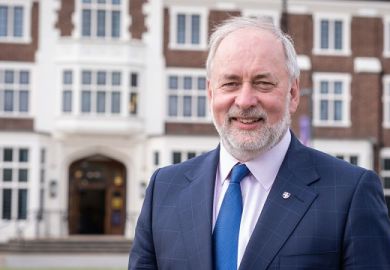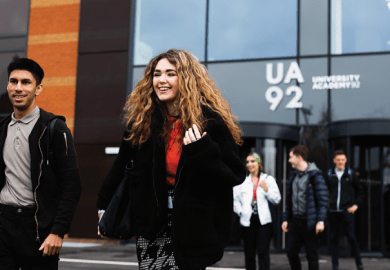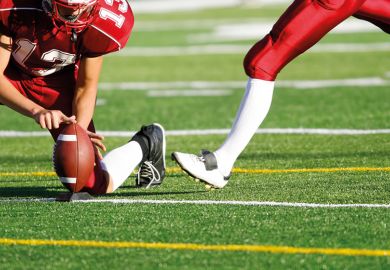If football used to be a game played with the heart, it is now increasingly dominated by data.
And by most metrics, one of the stand-out stars of the current UK Premier League season is Brighton and Hove Albion winger Kaoru Mitoma who, statistics show, is the second-best dribbler in the division and third most accurate shooter.
After such glowing performances, attention has turned to the Japanese international’s decision aged 18 not to turn professional but instead study at the University of Tsukuba, where he was apparently able to use research to make himself a better player. His thesis focused on dribbling and involved strapping cameras to the heads of his teammates and analysing their decisions on the ball.
Commentators – never ones to shy away from a cliché – have delighted in the idea that the student has become a master.
But Masaaki Koido, an assistant professor in Tsukuba’s Faculty of Health and Sport Sciences who coached Mr Mitoma in the university’s football team, told Times Higher Education that the results of the research itself had little impact on the player’s talents.
Instead, the very act of studying “led to a significant development in his ability to think logically and to verbalise his ideas”, which may have translated into improved performance.
While sporting bodies worldwide have long advocated for stars to remain in education as long as possible, up until now this has mainly been seen as a way of ensuring they have a back-up plan should injury or the ruthless nature of competition force them to abandon their dreams.
But there is emerging research that ties studying to degree level with improved athletic performance, according to Jane Holden, a senior lifestyle adviser who has worked on education programmes for the British Olympic swimming, equestrian and hockey teams and is studying for a PhD at the University of Portsmouth.
“[If you study] you will be selected more and you will have a longer career. There is that link now, which we have never had before,” she said.
“If you are thinking about emotional, intellectual development, and also the experience of being committed to high-level learning, the skills that can transfer into the game are shown to have a positive effect.”
This link, Ms Holden said, may be the extra motivation athletes need to keep studying.
Study, unfortunately, is still no substitute for enormous amounts of practice and Mr Koido’s memories of Mr Mitoma show he did not find a way to hack the system.
“He always took his training seriously. He often practised one-on-one after team practice,” he said of his protégé. “He has reached the very stage that he has been aiming for all his life, and I feel that this performance is the result of his continuous training toward this point. It is not a coincidence, but an inevitability.”
POSTSCRIPT:
Print headline: A degree, then sporting glory?
Register to continue
Why register?
- Registration is free and only takes a moment
- Once registered, you can read 3 articles a month
- Sign up for our newsletter
Subscribe
Or subscribe for unlimited access to:
- Unlimited access to news, views, insights & reviews
- Digital editions
- Digital access to THE’s university and college rankings analysis
Already registered or a current subscriber?








